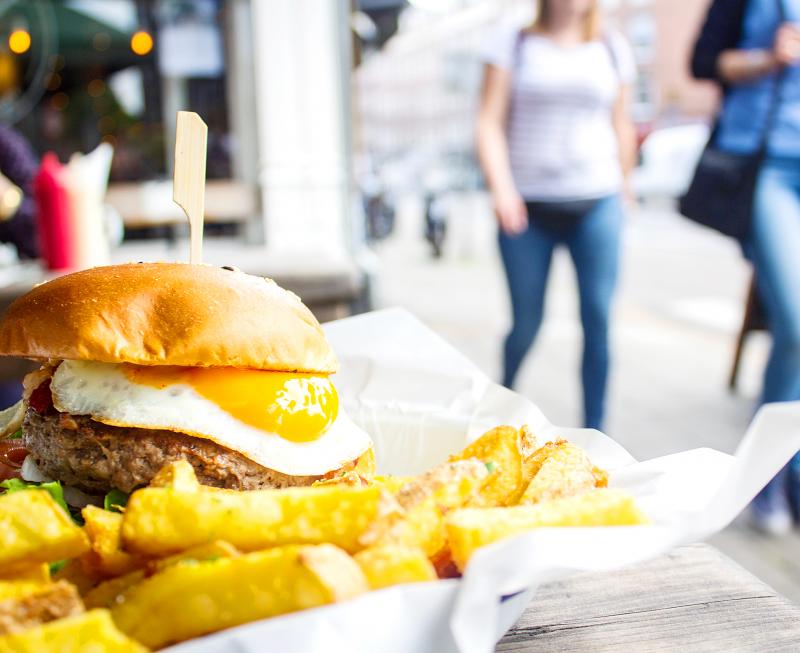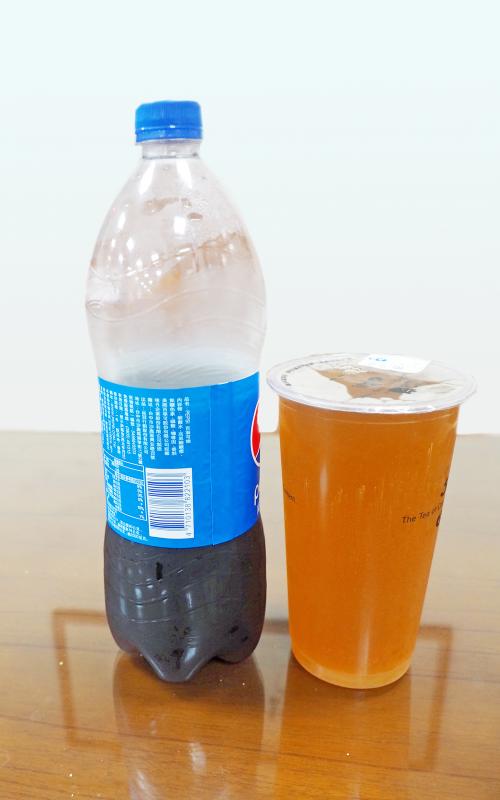French fries and hamburgers are popular with teenagers. Everyone knows that these high-calorie foods can lead to chronic illnesses such as heart disease and high blood pressure, but, according to a report published by Medical Xpress, a study led by the University of Queensland in Australia has found that eating too much junk food can also have an impact on teenagers’ sleep quality.
According to the research results, teenagers who drink more than three soft drinks per day were 55 percent more likely to report sleep disturbance than those who only drink one cup per day. Males who ate fast foods on more than four days per week were 55 percent more likely to report sleep disturbance than those who ate them only once a week, while females were 49 percent more likely to do so.
This global study examined unhealthy diets and stress-related sleep disturbance in high school students from 64 countries. The study found that 7.5 percent of adolescents reported having stress-related sleep disturbance, which was more common among females than males and increased with more frequent consumption of carbonated soft drinks, as did the occurrence of sleep problems. Because carbonated drinks often contain caffeine and large amounts of sugar, while fast foods are high in energy but poor in nutrients, long-term consumption can cause nutritional imbalances.

Photo: Unsplash 照片:擷取自Unsplash
These data were collected from global health surveys conducted by the WHO between 2009 and 2016, which included about 170,000 students aged 12 to 15 years from 64 low, middle and high-income countries in Southeast Asia, Africa, South America and the eastern Mediterranean.
The research team said that frequent intake of soft drinks and eating of fast foods is closely associated with sleep problems in teenagers, and that this phenomenon is particularly clear in high-income countries. The research team said that these findings are worrying because poor-quality sleep has an adverse impact on adolescent health and cognitive development. They suggested that policies should be formulated that target these unhealthy behaviors.
(Translated by Julian Clegg, Taipei Times)

Photo: Chen Feng-li, Liberty Times 照片:自由時報陳鳳麗
薯條、漢堡等速食及飲料很受青少年喜愛。眾所皆知這些高熱量食物會導致慢性疾病,如心臟病和高血壓等。不過,「醫療快訊」報導,澳洲昆士蘭大學帶領的一項研究發現,吃過多的垃圾食品還會影響青少年的睡眠品質。
根據研究結果,每天喝三杯以上飲料的青少年自稱有睡眠障礙的機率,比每天只喝一杯軟飲料的青少年高百分之五十五。每週吃四天以上速食的男性自稱有睡眠障礙的機率,比那些每週只吃一次速食的男性高百分之五十五,而女性的機率高出百分之四十九。
這是一項針對全球不健康飲食和與壓力有關的睡眠障礙研究,涉及來自六十四個國家的高中生。研究表明,百分之七點五的青少年自稱有壓力相關的睡眠障礙,其中女性比男性更常見,且隨著碳酸飲料的頻繁飲用而增加,睡眠障礙的比率也愈高。因為碳酸飲料通常含有咖啡因和高糖分,而快餐食品高熱量但較缺乏營養,長期攝取會營養不均衡。
這些數據收集自二○○九年至二○一六年世界衛生組織的全球健康調查,其中包括來自東南亞、非洲、南美部分地區和地中東海東部地區的六十四個低、中、高收入國家的約十七萬名十二至十五歲的學生。
研究團隊表示,青少年經常喝飲料、吃速食與睡眠障礙之間關聯密切,這現象尤其在高收入國家特別明顯。研究團隊指出,這些發現令人擔憂,因為睡眠品質差會對青少年的健康和認知發展產生不利影響。他們建議應針對這些不健康的行為制定相關政策,使青少年能健康成長。
(自由時報)

In an effort to fight phone scams, British mobile phone company O2 has introduced Daisy, an AI designed to engage phone con artists in time-wasting conversations. Daisy is portrayed as a kindly British granny, exploiting scammers’ tendency to target the elderly. Her voice, based on a real grandmother’s for authenticity, adds to her credibility in the role. “O2” has distributed several dedicated phone numbers online to direct scammers to Daisy instead of actual customers. When Daisy receives a call, she translates the scammers’ spoken words into text and then responds to them accordingly through a text-to-speech system. Remarkably, Daisy

Bilingual Story is a fictionalized account. 雙語故事部分內容純屬虛構。 Emma had reviewed 41 resumes that morning. While the ATS screened out 288 unqualified, she screened for AI slop. She could spot it a mile away. She muttered AI buzzwords like curses under her breath. “Team player.” “Results-driven.” “Stakeholder alignment.” “Leveraging core competencies.” Each resume reeked of AI modeling: a cemetery of cliches, tombstones of personality. AI wasn’t just changing hiring. It was draining the humanity from it. Then she found it: a plain PDF cover letter. No template. No design flourishes. The first line read: “I once tried to automate my

Every May 1, Hawaii comes alive with Lei Day, a festival celebrating the rich culture and spirit of the islands. Initiated in 1927 by the poet Don Blanding, Lei Day began as a tribute to the Hawaiian custom of making and wearing leis. The idea was quickly adopted and officially recognized as a holiday in 1929, and leis have since become a symbol of local pride and cultural preservation. In Hawaiian culture, leis are more than decorative garlands made from flowers, shells or feathers. For Hawaiians, giving a lei is as natural as saying “aloha.” It shows love and

1. 他走出門,左右看一下,就過了馬路。 ˇ He walked outside, looked left and right, and crossed the road. χ He walked outside and looked left and right, crossed the road. 註︰並列連接詞 and 在這句中連接三個述語。一般的結構是 x, y, and z。x and y and z 是加強語氣的結構,x and y, z 則不可以。 2. 他們知道自己的弱點以及如何趕上其他競爭者。 ˇ They saw where their weak points lay and how they could catch up with the other competitors. χ They saw where their weak points lay and how to catch up with the other competitors. 註:and 一般連接同等成分,結構相等的單詞、片語或子句。誤句中 and 的前面是子句,後面是不定詞片語,不能用 and 連接,必須把不定詞片語改為子句,and 前後的結構才相等。 3. 她坐上計程車,直接到機場。 ˇ She took a cab, which took her straight to the airport. ˇ She took a cab and it took her straight